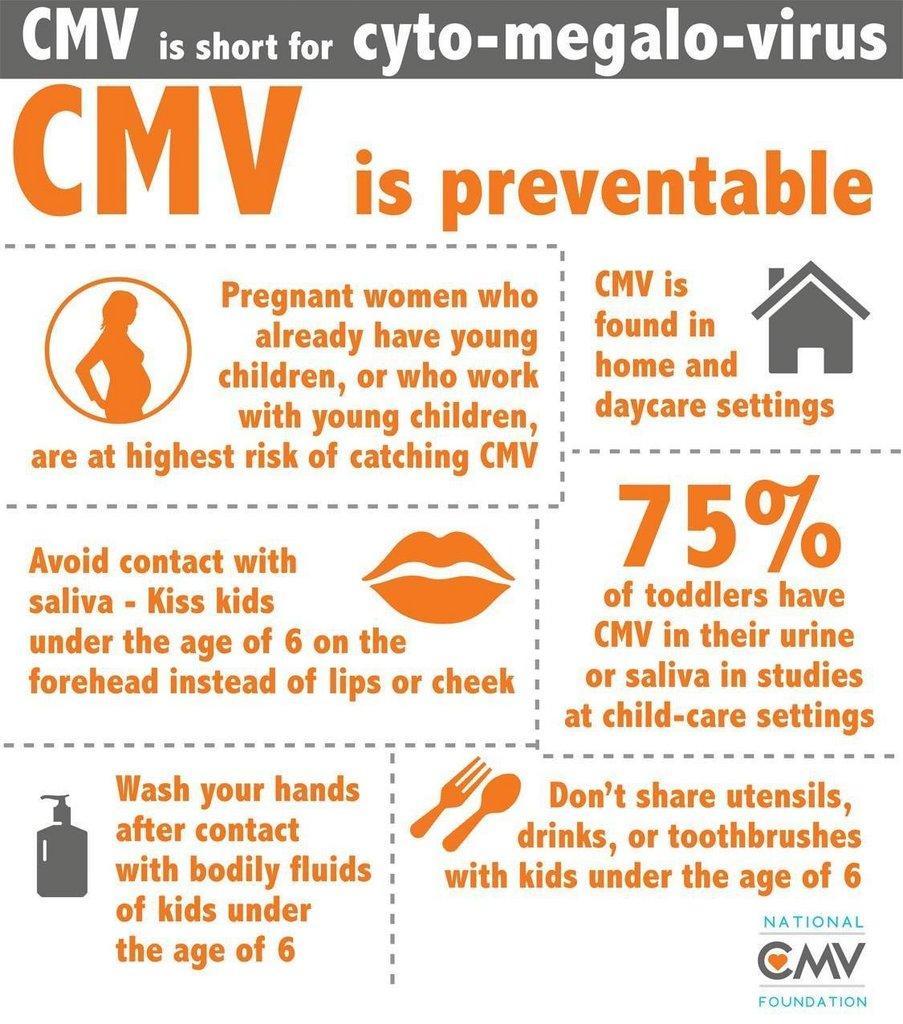Chart courtesy of National CMV
About one in every 200 babies are born with the Cytomegalovirus Infection (CMV). Consequently, nearly one out of five will have birth defects or other long-term health problems. With statistics such as those, it would seem likely that many would know about the infection, especially women that are expecting or hope to conceive.
However, CMV is not a widely-discussed issue, even though it is a common virus that is transferred by bodily fluids. Generally harmless to those with healthy immune systems, CMV is still known as the most common congenital viral infection in the United States.
It was reported by the Center for Disease Control (CDC) that a larger number of children will have disabilities due to congenital CMV than other well-known infections and syndromes, including Fetal Alcohol Syndrome, pediatric HIV/AIDS and more.
As expectant mothers are not typically tested for CMV during pregnancy, CMV is not discovered until the baby’s arrival. One local family did not discover that their child had CMV until breathing issues led to an emergency trip to Primary Children’s Hospital in Salt Lake City.
Noted symptoms that an infant may have congenital CMV are seizures, rashes, a small head size, and issues with the liver, spleen or lungs. However, the most common long-term health problem associated with CMV is hearing loss, which can be detected soon after birth or later in childhood.
Within two to three weeks of birth, a baby is usually tested for CMV through samples of urine, blood or saliva. Those that show early signs may also be treated with antiviral medicines that possibly decrease the severity of health problems and hearing loss. These medications are met with caution, however, as they are known to cause side effects.
Those that are born with signs of congenital CMV are at risk for a variety of long-term health issues, including hearing loss, vision loss, lack of coordination and more. Children that are diagnosed with congenital CMV are urged to conduct regular hearing checks and are sometimes encouraged to receive speech services or occupational therapy.
Once CMV is contracted, it is retained within the body for life. Expectant mothers are prompted to reduce contact with saliva and urine from young children as well as infants. This means washing your hands immediately after a diaper change and not sharing food.
Other ways to assist in the prevention of transmitting CMV to infants is to wash your hands before holding them, avoiding kissing them on the mouth, and cleaning toys and surfaces that come in contact with their bodily fluids, including saliva and urine.
To learn more about CMV, as well as its symptoms, effects and prevention, please click here.


